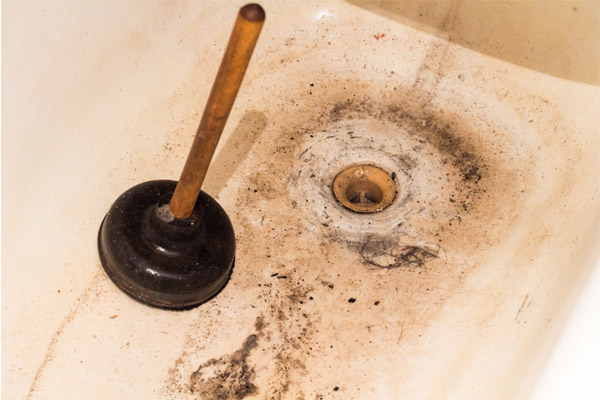Crucial Explanations for Effluent in the Bathtub
Crucial Explanations for Effluent in the Bathtub
Blog Article
Just how do you feel in regards to Why is There Sewage Coming Up Through the Bathtub?

Sewer backup in the bathtub can be a stressful and unsanitary problem for any type of property owner. Not only is it inconvenient, yet it likewise positions major wellness risks and indicates underlying issues with the plumbing system. Comprehending why sewage is coming up through the bath tub is important for taking suitable action to address the trouble properly.
Intro to the Concern
Typical Factors for Sewage Backup
Obstructions in the Drain Line
Among the most usual root causes of sewer back-up is an obstruction in the sewage system line. This can occur due to the accumulation of debris, oil, or international items in the pipes, preventing proper circulation and creating sewage to support into your bath tub.
Tree Origin Breach
Tree roots looking for dampness and nutrients can penetrate sewer lines with little fractures or joints. Over time, these origins can expand and increase, creating considerable damage to the pipelines and resulting in sewage backup problems.
Comprehending the Trouble
When sewage draws back up right into the bath tub, it's a clear sign of a problem with the water drainage system. The wastewater that should be moving away from your home is instead discovering its back into your living space, which can lead to substantial damage and carcinogen.
Potential Reasons
Several elements can contribute to sewage back-up in the bathtub. From blockages in the sewer line to issues with the plumbing facilities, determining the origin is necessary for finding an option.
Aging Framework
Older homes may have dated plumbing systems that are extra susceptible to rust, cracks, and damage. As pipelines age, they become extra susceptible to leaks and blockages, boosting the chance of sewage back-up incidents.
Heavy Rainfall or Flooding
During durations of heavy rainfall or flooding, the sewer system may become overloaded with excess water, triggering backups and overflows. This can cause sewer backing up into tubs and other components inside the home.
Indications of Sewer Backup
Foul Odors
Unpleasant odors rising from drains pipes or fixtures, particularly in the bathroom, may indicate sewage back-up problems. These smells are often solid and consistent, signifying an issue that requires immediate interest.
Slow Draining Fixtures
Bathtubs, sinks, and toilets that drain pipes gradually or not at all could be experiencing sewer backup. If multiple fixtures are impacted at the same time, it's most likely that the concern stems from an usual point, such as the primary drain line.
Gurgling Noises
Odd gurgling or bubbling noises originating from drains when water is running elsewhere in your house are a sign of air trapped in the plumbing system. This air build-up can arise from sewer back-up and should be explored promptly.
Health Risks Associated with Sewer Backup
Contamination of Water
Sewer back-up can pollute the water system in your home, positioning a significant wellness danger to you and your family members. Direct exposure to contaminated water can bring about intestinal problems, skin infections, and other health problems.
Mold Growth
Dampness from sewer backup can produce perfect problems for mold growth in your house. Mold and mildew spores can exacerbate respiratory issues and trigger allergies in delicate individuals, making prompt clean-up necessary.
Spread of Disease
Sewer contains unsafe germs, infections, and parasites that can create a variety of illness, including hepatitis, cholera, and gastroenteritis. Entering contact with sewage or polluted surface areas puts you at risk of infection.
Tidying up After Sewer Back-up
Disinfection Procedures
Completely decontaminate and disinfect influenced areas after sewer backup to remove dangerous bacteria and avoid mold development. Usage ideal cleansing products and safety equipment to make certain safe and effective cleanup.
Reconstruction of Impacted Locations
Repair any damage to floor covering, walls, or fixtures triggered by sewage backup. Depending on the degree of the damages, you might require to replace carpets, drywall, or other products to recover your home to its pre-loss condition.
Immediate Actions to Take
Switching Off Water Supply
In case of sewage back-up, it's necessary to switch off the water supply to avoid further contamination and damage. Find the primary water shutoff valve in your home and shut it off till the concern can be solved.
Contacting a Specialist Plumber
Managing sewage back-up is not a do it yourself work. Contact an accredited plumber with experience in handling sewage-related problems to analyze the scenario and carry out necessary repairs or cleanings.
Staying Clear Of Contact with Infected Water
Until the sewer back-up is fixed, stay clear of contact with polluted water to stop the spread of germs and virus. Wear safety gear if you should remain in the affected location and clean your hands extensively afterward.
Safety nets
Routine Maintenance of Sewer Lines
Schedule normal inspections and upkeep of your drain lines to recognize and deal with possible concerns before they intensify into significant problems. This can include cleaning debris, examining for tree root invasion, and repairing any type of broken pipelines.
Mounting Backwater Valves
Take into consideration mounting bayou valves in your plumbing system to prevent sewer from receding into your home throughout periods of heavy rainfall or flooding. These valves immediately close when water draws back up, safeguarding your building from contamination.
Appropriate Disposal of House Waste
Stay clear of purging anything other than toilet paper and human waste down the commode to prevent blockages and blockages in the sewage system line. Dispose of grease, oil, and various other home chemicals correctly to lessen the risk of plumbing troubles.
Why Is Water Backing Up in My Bathtub When I Flush My Toilet?
What to do about a sewer line clog
First, don’t bother with plunging. No amount of plunging will dislodge the clog in a sewer line. The clog is too far away. Plungers are for clogs in the toilet itself, not the sewer line. Plus, the most likely causes of a sewer clog are:
Tree roots Flushed toys or feminine products Grease buildup Those items don’t move easily. And in the case of tree roots, the roots need to be cut out of the pipe and the pipe will need to be repaired.
You’ll need a closet auger. A closet auger is a type of plumber’s snake with a protective cover to keep from scratching the delicate porcelain toilet. If the clog is further down, you may need to remove the toilet or use one of your cleanouts to get to the clog.
We also recommend doing a video inspection of the drain to ensure that the cause of the clog has been completely removed. Otherwise, you could have the same problem again in a few days or weeks.
https://mspplumbingheatingair.com/blog/why-is-water-backing-up-in-my-bathtub-when-i-flush-my-toilet

Do you appreciate more info about Why is There Sewage Coming Up Through the Bathtub? Make feedback directly below. We would be happy to know your opinion about this blog. Hoping to see you back again soon. Those who enjoyed our page plz make sure you remember to share it. Thank-you for going through it.
Schedule A Free Estimate
Report this page